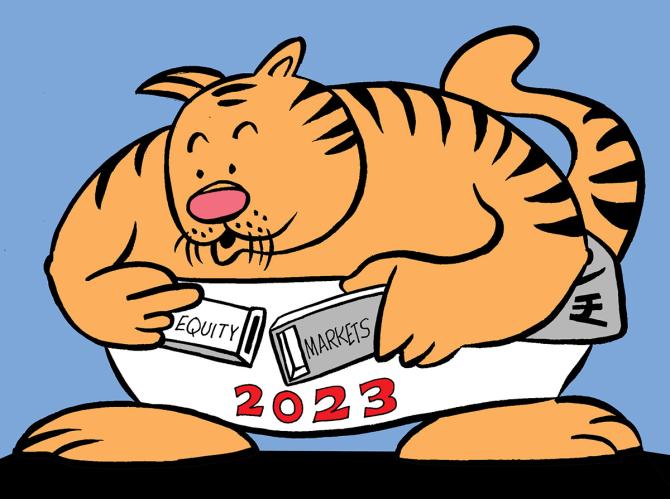Equity and oil markets can breathe easy for now, as the developments in Russia are unlikely to trigger a runaway rally in crude oil prices, said analysts.

India, which imports nearly 80 per cent of its crude oil requirement, has been dependent on cheap Russian oil over the past few months to keep inflation – a sore point for the equity markets – in check.
For the Indian markets that are expected to remain volatile amid these developments, analysts believe, the progress of monsoon, fund flows – both foreign institutional investor (FII) and domestic – and the upcoming corporate earnings season back home remain key.
At a macro level, besides the geopolitical developments, global central bank policies and China’s economic progress will also be watched, analysts said.
The conflict between Moscow’s leadership and Prigozhin, the chief of private mercenary group Wagner, had escalated into an open insurrection last week.
However, the Russian mercenaries who had advanced most of the way to Moscow have stopped – at least for now, de-escalating a major challenge to President Vladimir Putin’s grip on power.
Paul Hickin, an independent oil market expert believes that it will take a much bigger geopolitical risk than developments in Russia for the oil prices to break out of their current range of $70 – $85 a barrel.
That said, he believes there will be some geopolitical risk premium added to the oil prices in the short term.
“Developments in Russia have always wrong-footed the oil markets, even when the country invaded Ukraine.
"Oil prices had surged past the $100 a barrel mark on risk of shortages back then.
"The recent developments are like a storm in a tea cup for the oil markets, which will settle soon.
"The markets will eventually focus on other important things, like the developments in China and its economic recovery and its impact on demand for oil.
"It is difficult for oil prices to break out of their $70 a barrel to $85 a barrel range in the backdrop of recession fears in the US and Europe, slow pace of demand recovery in China and support from OPEC+,” Hickin said.
Brent crude oil prices had shot up by over 3 per cent over the weekend to around $74.5 a barrel mark following the developments in Russia.
Thus far in calendar year 2023 (CY23), oil prices have dropped by around 11 per cent, data shows.
Meanwhile, India’s rising imports of Russian oil hit a record high of nearly 1.95 million barrels per day (bpd) in May, reports suggest.
This is nearly 40 per cent of India's oil needs. As a result, oil imports from Iraq at 801,400 bpd hit a three-year low, while the import from Saudi Arabia at 616,100 bpd dipped to their lowest since September 2021, data suggests.
A rise in purchase of discounted Russian oil, the share of imports from the Middle East - traditionally India's go to destination for crude oil purchase - declined to an all-time low of about 39 per cent in May from 44 per cent in April, according reports.
Analysts expect the markets to remain choppy over the next few weeks as they remain in a wait-and-watch mode as regards developments in Russia and the progress of monsoon back home.
“Markets may remain choppy given the recent interest rate hike by the Bank of England (BoE) and the US Fed hinting at two more rate hikes this year.
"Concerns regarding China’s growth also point towards a challenging environment for the global economic recovery.
"Technically, the Nifty is likely to gather momentum only above 18,888.
"The support is seen at 18,555 levels,” said Prashanth Tapse, senior vice-president for research at Mehta Equities.












